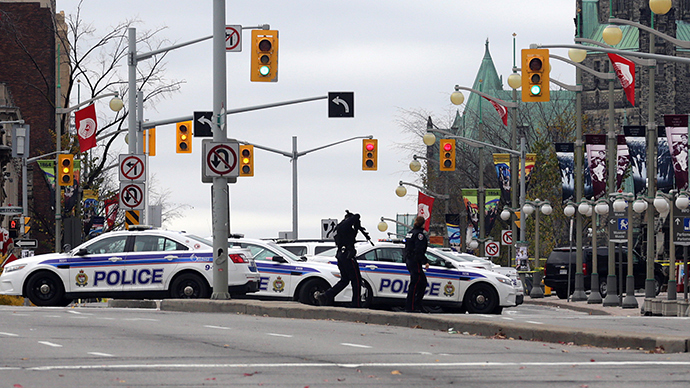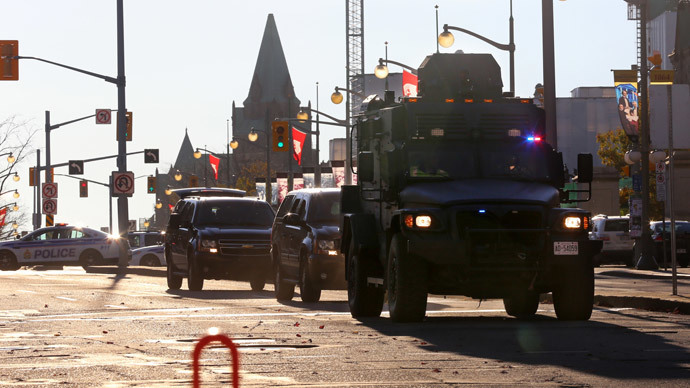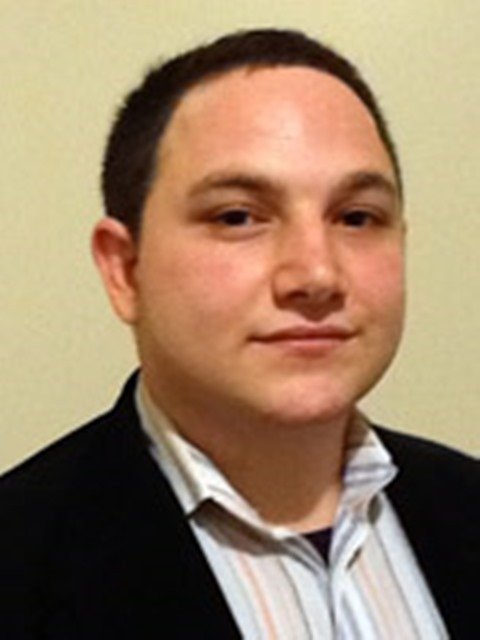‘Canadian govt to use Ottawa shootings to justify its preconceived M.E. agenda‘

Ottawa shootings are convenient for the Canadian authorities who are in an internal political conflict over their decision to join with the US in the Middle East in the “war on the Islamic State,” geopolitical analyst Eric Draitser told RT.
RT:The incident occurred in broad daylight and the assailant managed to get inside the Parliament. How was this allowed to happen?
READ MORE:Ottawa gunman ‘identified’ as recent Muslim convert, high-risk traveler
Eric Draitser: Certainly, that’s an open question, but I think that the statement that was made regarding the tracking of the certain individuals by intelligence services also raises a number of important questions. Remember that we have a repeated pattern, a historic pattern in recent years, for instance, of the US, of the FBI tracking many of these so-called terrorists and in many ways entrapping them and/or enabling them. So if Canadian Intelligence or any other intelligence agency had eyes or ears on this individual or other individuals, there certainly is going to be an investigation needed into that. I would be very excited and anxious to know exactly what would come out of such an investigation because it is clear that this sort of incident, not only that it is not a norm in Canada, but it is certainly well-coined and convenient for the Canadian authorities who have had an internal political conflict emerging over their decision to join with the US in the Middle East in a so-called “war on the Islamic State”. Not only is the timing and intelligence angle interesting, but also the larger political question of Canada’s role within the US-led coalition. All that is on the table and all of that has turned into questions after yesterday’s events.

RT:The first shooting occurred near the National War Memorial and then the suspected attacker rushed into the Parliament. What do you make of the targets chosen by the assailant?
Former MI5 agent Annie Machon on Ottawa shootings: “The only way to establish what really happened is through a forensic investigation and an evidential case-building study of the attack, when people can work out what happened, hopefully gather evidence, and put people on trial in front of a jury. That would be the same logical and mature response from the mature democracy. I hope the Canadians will do that rather than using this as yet another pretext for stripping away the civil liberties, increasing surveillance and policing of the Canadian people”.
ED:There are targets; you can call them soft-targets that are designed to inflict maximum anxiety on the Canadian people. Remember that in order to justify any kind of a military operation; particularly for a country as demilitarized in many ways as Canada is, they are going to need to sell it to the public. A well-timed event like this certainly has that function. But again, we need to dig a little bit deeper and ask ourselves what role has Canada played not only in inspiring these individuals but also in infusing this sort of radical element into its own culture, into its own society. There is a very important domestic political struggle happening in Canada, and it is a reaction against what we call neo-con ideology and the agenda of Prime Minister Harper, someone who harkens back towards (in US politics) the Bush era. So in many ways you are seeing the transformation and radicalization of Canadian domestic politics and in many ways we could interpret yesterday’s events as a spillover or the off-shoot of this transformation.
RT:The attack has raised fears of terrorism within Canada. What reaction do you expect from the government? Would it think twice about being part of the anti-ISIS coalition?
ED: Absolutely not. It will be taken as further confirmation that it needs to move forward and be even more militant and more aggressive. This is precisely how these events are translated into the political currency that is needed in order to pursue a particular agenda. There is no real base of support for Canada’s involvement in the US-sponsored war in the Middle East. In many ways there is not that massive support in the US despite what these polls might tell you. So really then the question becomes to what extent the event will be capitalized on by the Canadian ruling class, by the Canadian elites and how it is going to translate into Canada’s foreign policy. No country and no leader of any country wants to be made to look cowardly and certainly Harper is one of these individuals, one of these leaders going to use the event in order to justify his preconceived agenda in the Middle East.
The statements, views and opinions expressed in this column are solely those of the author and do not necessarily represent those of RT.
The statements, views and opinions expressed in this column are solely those of the author and do not necessarily represent those of RT.













